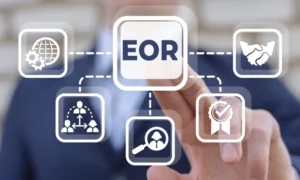Pre-employment screening is a crucial step in the hiring process for companies across various industries. It involves conducting background checks and assessments to evaluate a candidate’s suitability for a particular role and to mitigate potential risks to the organisation.
Pre-employment screening typically includes several components:
Employment History Verification
Employers typically verify the accuracy of a candidate’s employment history, including positions held, dates of employment, job titles and responsibilities. This helps ensure that the candidate’s qualifications and experience match what is stated on their resume or application.
Education Verification
Pre-employment screening may also involve verifying the educational credentials claimed by the candidate, such as degrees, certifications and diplomas. This helps confirm that the candidate possesses the necessary qualifications for the position and has not misrepresented their educational background.
Professional License Verification
For positions that require specific professional licenses or certifications, employers may verify that the candidate holds the appropriate credentials and that they are valid and in good standing.
Reference Checks
Employers often contact references provided by the candidate to gather insights into the candidate’s work ethic, skills, strengths and areas for improvement. Reference checks help validate the candidate’s qualifications and provide valuable information about their past performance and behaviour in the workplace.
Drug and Alcohol Screening
Some employers require candidates to undergo drug and alcohol screening as part of pre-employment screening. This is particularly common in safety-sensitive industries such as transportation, healthcare and manufacturing, where impairment could pose significant risks to employees, customers or the public.
Criminal Record Checks
One of the most common elements of pre-employment screening is a criminal record check. This involves searching databases for any past criminal convictions or charges against the candidate. Employers often use this information to assess the candidate’s integrity, trustworthiness and potential risk to the organisation and its employees.
Credit Checks
In certain roles, especially those involving financial responsibilities or access to sensitive financial information, employers may conduct credit checks to assess the candidate’s financial stability, responsibility and trustworthiness.
Social Media Screening
Employers may review a candidate’s social media profiles as part of pre-employment screening to gather additional insights into their character, behaviour and professional reputation. However, employers must be mindful of legal considerations and avoid discriminatory practices when using social media screening.
Skills and Aptitude Assessments
Depending on the nature of the role, employers may administer skills and aptitude tests to assess the candidate’s technical skills, cognitive abilities, problem-solving capabilities and fit for the position.
Legal Compliance Checks
Employers must ensure that their pre-employment screening practices comply with relevant laws and regulations, including those governing privacy, discrimination and fair hiring practices. This goes for companies in all industries, even ones that sell Funky socks.
To Wrap Things Up
Overall, pre-employment screening is a comprehensive process designed to help employers make informed hiring decisions, mitigate risks and ensure the integrity and safety of their workforce and organisation.
By conducting thorough background checks and assessments, employers can identify qualified candidates who are well-suited for the role and aligned with the company’s values and objectives.



































